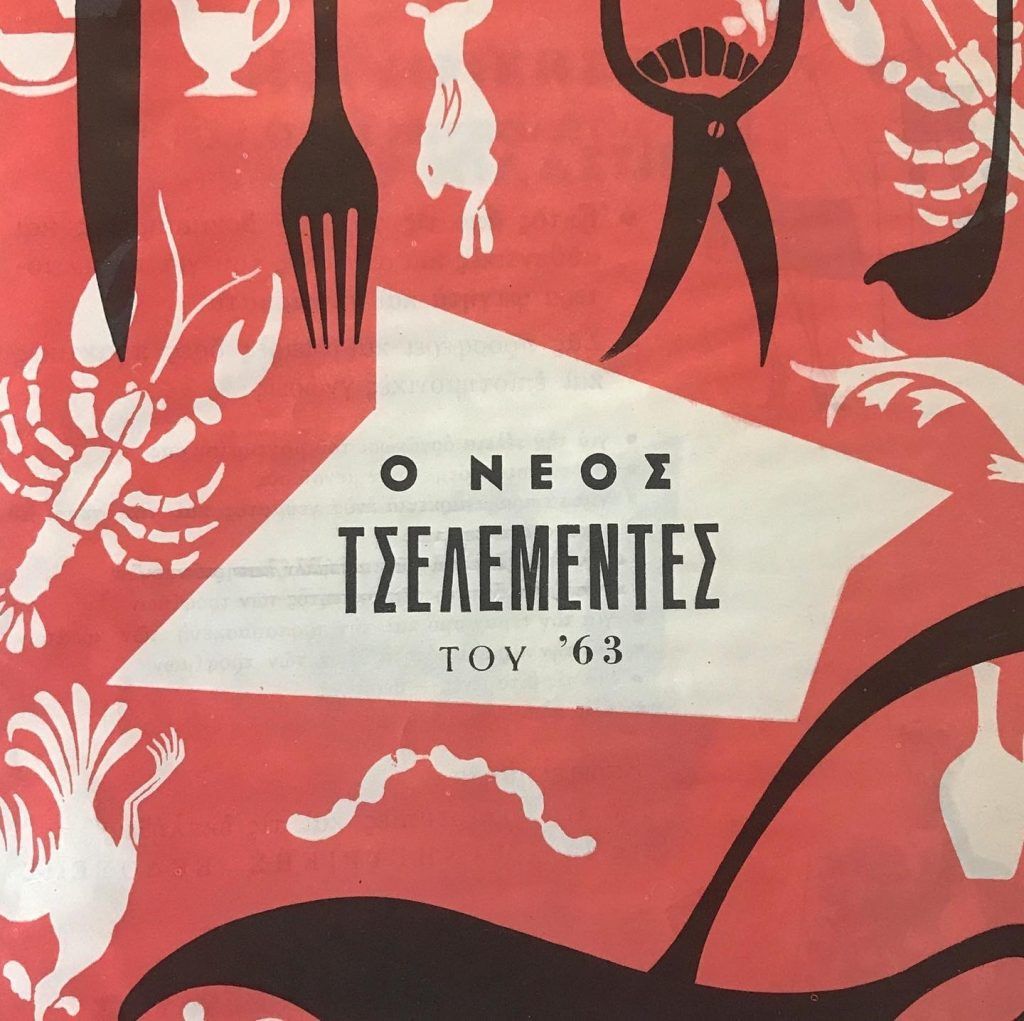
Jour fixe
“Mrs Dalloway said she would buy the flowers herself.“
She is buying the flowers herself as an act of self observation during the preparations of a social event. The woman in a leading role is taking some time to observe her inner self, some time to daydream and admire. She is conscious about her role in society and she knows that her party is going to be a slow succes.
Buying flowers is a performative act. Flowers are temporary. People admire their dying beauty. Flowers are still life. In Latin and in my mother tongue (Greek), the term for still life is Dead Nature (Natura Morta in Latin, Νεκρή Φύση in Greek).
The way we celebrate manifests our mentality, it represents our approach to life, class and ideology. Social events are an act of self affirmation, creating and following protocols. Protocols create habits. Habits create rituals.
For Open Space’s Kitchen Takeover, I looked at the memorabilia of my great grandmother, her household, her books and the spoken stories around her. I tried to understand what they represent, which stories they are bringing with them, and where I stand. I follow the style of another era and recreate it today. I do that by constructing a setting, creating a scenography in the living room of my apartment. I try to allow myself to experiment with objects, representation of class, hysteria for perfection and social image, and the useless rituals of self-affirmation and family roles.
The main inspiration for the project is the most prominent Greek cookbook Tselementes.
Nikos Tselementes published this influential cookbook, a guide to cooking and patisserie in 1920, and it is the first complete cookbook in Greek. Influenced by European and specially French cuisine, he was the moderniser of Greek cuisine, as thanks to him, people in the country learned Bechamel and Bouillabaisse. His name Tselementes is a synonym today for ‘cookbook’ in Greek. The book is full of recipes, instructions and ideas for a modern lifestyle, not just a recipe book, but a bible of modernisation and the middle class way of living.
Pudding from my great grandmother
Chocolate mosaic from my mother
Savoiardi and butter cream (the greek tiramisu) by me
Behind the recipes and food styling photos, the writer proposes a pioneering way of setting our tables. How to eat, celebrate, and maintain a contemporary lifestyle.
The Family Treasure /
Trophy
Nikos Tselementes gives us advice on how to maintain a modern way of living

—
Acknowledgments:
Open Space, Huma Kabakci, Riet Timmerman, Zoë Wilkinson
Alexandra Mourtzini and Theo Tzannetakis
Chrysanthi Koumianaki, Paky Vlassopoulou, Ioanna Gerakidi and Kelly Tsipni Kolaza
—
Kosmas Nikolaou (1984, Athens) lives and works in Athens. He studied Arts and Architecture. His practice deals with the functions of architecture, spatial qualities, memory, narration, rumour, gossip, institutionalisation, institutional critique and non-verbal communication. He often works with modernism, found archives and personal stories. The displayed material and the produced works in his installations creates a new narration which stands between reality and setting.
He has taken part in group shows in Greece, in the Balkans, in Europe and in the middle east, in different museums, foundations and independent spaces. He has done four solo shows in Rebecca Camhi Gallery in Athens, in Brauchbarkeit in Cologne, in the Villa Bologna in Malta and at D.O.C. in Paris. He has been part of residency programs in Greece, Germany, Italy, Malta, Poland, Russia, UAE, and he was part of Ideas City of New Museum NY. His pieces are part of private collections in Europe. Since 2012, he has co-founded and co-directs the independent artist run space 3 137 in Athens together with the artists Paki Vlassopoulou and Chrysanthi Koumianaki.
























